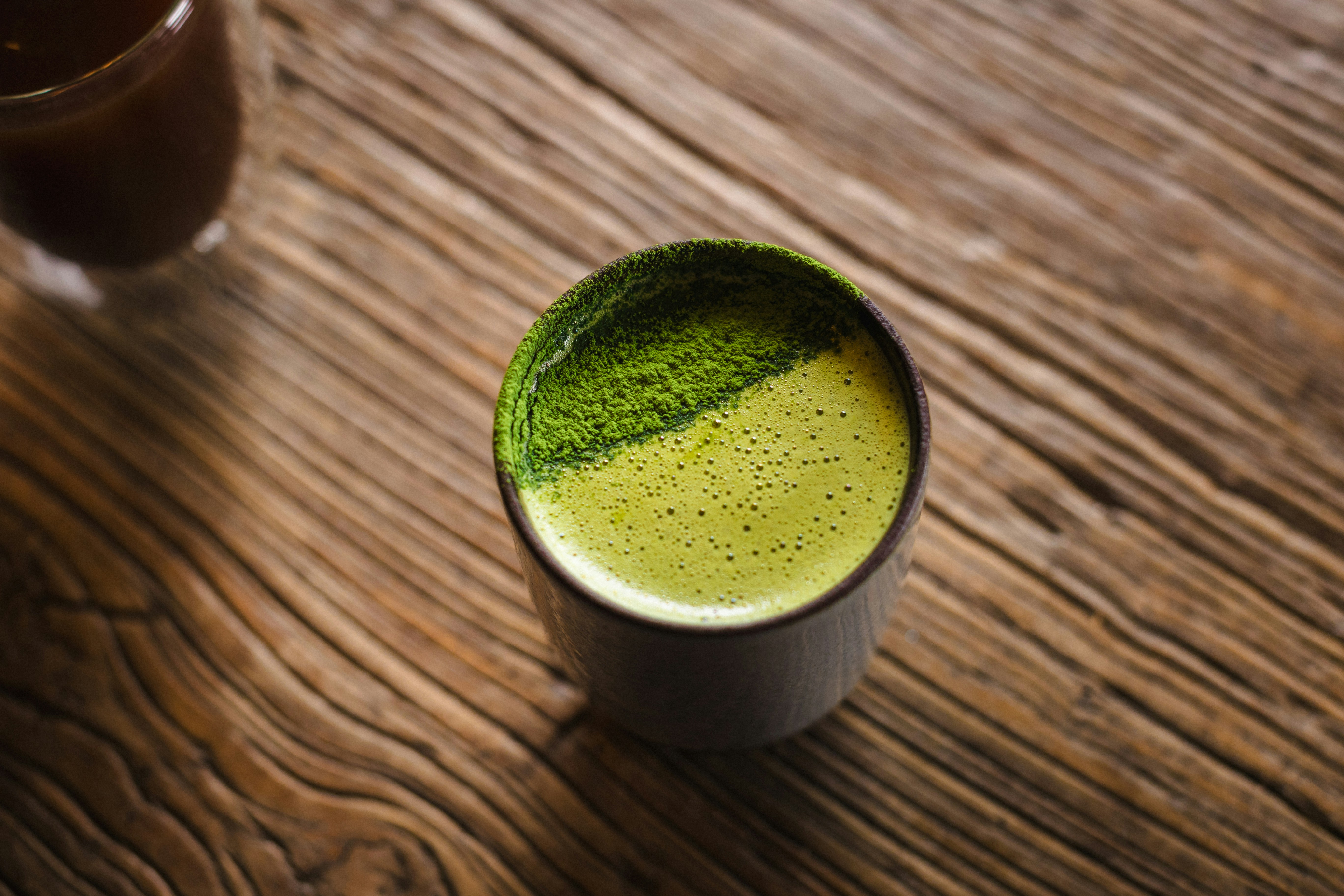Introduction to Black Tea and Mindfulness
In an increasingly fast-paced world, the quest for tranquility and presence has become a fundamental aspect of many people’s lives. Mindfulness, the practice of being fully engaged in the present moment, has gained prominence across various cultures and disciplines as an effective way to cultivate mental clarity and emotional stability. One of the rituals that can significantly enhance mindfulness is the simple act of drinking black tea.
Black tea is not merely a beverage; it embodies a rich history and cultural significance across the globe. From the traditional Japanese tea ceremonies to the British afternoon tea ritual, the preparation and consumption of tea have always been steeped in intentionality and respect. These practices encourage individuals to slow down and savor not only the flavors and aromas of the tea but also the very act of drinking it. This ritual can serve as a potent gateway to experiencing mindfulness.
The deep-rooted connection between black tea and mindfulness is evident in its calming properties, attributed in part to the presence of L-theanine, an amino acid known to promote relaxation and improve focus. The warmth of the tea, paired with focused breathing, provides a sensory experience that aids individuals in becoming more aware of their thoughts and feelings. As one engages in the routine of preparing and sipping black tea, it becomes an opportunity to step away from distractions and embrace a moment of peace amidst the chaos of daily life.
Therefore, integrating the ritual of drinking black tea into one’s daily routine can serve as a profound way to enhance mindfulness. By allowing ourselves to be fully present during this experience, we can cultivate a greater sense of calm and awareness, facilitating a journey towards improved mental and emotional well-being. The subsequent sections of this guide will delve deeper into practical methods to incorporate black tea and mindfulness into everyday life.
The History of Black Tea: A Mindful Beverage
Black tea, a product derived from the Camellia sinensis plant, has a rich history that dates back to ancient China, where it is believed to have been consumed as early as the Tang Dynasty (618-907 AD). Initially recognized for its medicinal properties, black tea’s popularity burgeoned during the Ming Dynasty (1368-1644), when it began to be produced in larger quantities and exported to various parts of the world. As trade routes expanded, so did the appreciation for this invigorating beverage, leading to its adoption across different cultures and continents.
In Japan, black tea was embraced during the 17th century, introduced by Dutch traders. It soon became intertwined with the Japanese tea ceremony, emphasizing mindfulness and presence—key elements characteristic of the country’s cultural practices. The act of preparing and consuming black tea, with its deliberate motions and sensory engagement, promotes a reflective state of mind. Furthermore, in Britain, the tradition of afternoon tea emerged in the 19th century, creating a social occasion centered on savoring black tea, offering a moment of respite in the busy routines of daily life.
As black tea traveled beyond its origin, it became a vessel for mindfulness in various forms. In many cultures, rituals developed around its brewing and consumption, highlighting communal gatherings or solitary moments of contemplation. The robust flavors and comforting warmth of black tea encouraged individuals to pause, reflect, and engage with their surroundings. This global phenomenon illustrates how black tea, beyond being a simple beverage, serves as a conduit for mindfulness, allowing people throughout history to cultivate inner peace and connection.
Understanding the Benefits of Black Tea
Black tea is revered not only for its robust flavor but also for its myriad health benefits, which enhance both physical and mental well-being. Rich in antioxidants, particularly polyphenols, black tea plays a pivotal role in combating oxidative stress in the body. Studies indicate that regular consumption of black tea can lead to a reduction in the risk of chronic diseases such as heart disease and diabetes, primarily due to its ability to improve cardiovascular health and regulate blood sugar levels.
Moreover, black tea has been linked to improved cognitive function. According to research published in the European Journal of Nutrition, the combination of caffeine and the amino acid L-theanine in black tea can significantly enhance alertness and attention. This makes black tea an excellent choice for mindfulness practices, where focus is essential. The gentle caffeine boost from black tea, in contrast to coffee, offers a more sustained energy increase, allowing individuals to engage in their daily activities with heightened awareness and concentration.
In addition to cognitive benefits, black tea is known to positively impact mood. The consumption of black tea has been associated with lower levels of stress and anxiety, which is crucial for maintaining mental health. A study in the journal Psychosomatic Medicine found that individuals who consume black tea regularly reported feeling more relaxed and less anxious than those who did not, reinforcing the idea that integrating black tea into one’s daily routine can support emotional well-being.
In conclusion, the comprehensive benefits of black tea, from its rich antioxidant content to its potential for improving focus and mood, highlight its suitability for individuals seeking to enhance their mindfulness practices. By incorporating black tea into daily routines, one can foster a healthier lifestyle that supports both physical health and mental clarity.
Creating a Daily Black Tea Mindfulness Ritual
Incorporating black tea into a daily mindfulness ritual can significantly enhance mindfulness practices, providing an opportunity to connect with oneself through a calming experience. To start, selecting high-quality black tea is essential. Look for loose-leaf options that offer richer flavors and aromas compared to tea bags. This initial selection process encourages mindfulness, as it allows you to consider various types of black tea, such as Assam or Darjeeling, each having unique characteristics that can influence your mood and experience.
Once you have selected your tea, the preparation becomes a vital part of your mindfulness ritual. As you heat the water, take note of the sounds and sensations around you. Observe the steam rising and savor the warmth radiating from the kettle. When the water reaches the right temperature, pour it over the tea leaves, and watch as the colors and aromas gradually unfold. This moment of attentive observation is a simple yet profound way to cultivate presence and awareness.
During the steeping process, engage in reflective practices that enhance your mindfulness further. You might choose to take a few quiet moments to breathe deeply, focus on your breath, or even meditate on an intention for the day. Consider journaling your thoughts or feelings as you wait, allowing this time to serve as a sacred space for self-reflection. When your tea is ready, approach it with reverence; take small sips and truly savor the taste and aroma. Experiment with different additions, such as honey or lemon, and notice how they change the experience. Through consistent practice, a simple cup of black tea can transform into a cherished ritual, fostering deeper connections to the present moment and promoting overall well-being.
Mindfulness Techniques to Use with Black Tea
Integrating mindfulness techniques into the ritual of enjoying black tea can significantly enhance the experience, transforming a simple beverage into a moment of reflection and awareness. One effective technique is breath awareness. As you prepare your cup of black tea, take a moment to focus on your breathing. Inhale deeply through your nose, feeling your abdomen expand, and then exhale slowly through your mouth. While performing this exercise, visualize any stress or distractions dissolving with each breath. This practice of concentration sets a peaceful tone, creating an ideal environment for consuming tea.
Another technique is gratitude reflection. Before sipping your black tea, take a few moments to acknowledge the process that brought it to your cup, from the farmers who cultivated the tea leaves to the natural elements and time that contributed to its flavor profile. Reflect on what the tea represents for you—whether it be comfort, a moment of pause, or a connection to cultural traditions. By cultivating gratitude, you enrich your tea-drinking experience and expand your awareness of its significance in your daily life.
Sensory exploration is also paramount in practicing mindfulness with black tea. Engage your senses fully by observing the color of the liquid as you pour it into your favorite cup. Smell the fragrant steam rising from the surface, allowing the aroma to fill your awareness. As you take a sip, focus on the taste and texture of the tea in your mouth. Notice the warmth as it flows down your throat, bringing a sense of calm and presence. Each of these sensory experiences can help anchor your mind, promoting a mindful state and fostering a deeper connection to the moment. Incorporating these techniques into your black tea ritual can enrich not only the enjoyment of the tea but also your overall mindfulness practice.
Tea and Mental Clarity: A Revitalizing Practice
Black tea is revered for its unique ability to enhance mental clarity and promote focus. The primary constituents of black tea, caffeine and L-theanine, work synergistically to create a balanced state of alertness. Caffeine, a well-known stimulant, increases the levels of dopamine and norepinephrine in the brain, contributing to improved mood, increased vigilance, and heightened cognitive function. Meanwhile, L-theanine, an amino acid abundantly found in tea, fosters relaxation without causing drowsiness. This combination allows drinkers to experience a revitalizing practice that supports both deep work and moments of relaxation.
The benefits of black tea extend beyond mere alertness. Studies suggest that the presence of L-theanine helps counterbalance the overstimulation commonly associated with caffeine, creating a smoother cognitive experience. This effect can be particularly advantageous during prolonged periods of focus, such as studying, working on complex tasks, or even engaging in creative endeavors. Personal anecdotes highlight the transformative power of tea breaks. Many individuals describe moments of insight or breakthroughs in thought flow following a brief interlude with a cup of black tea. These stories underline the integral role that this beverage can play in enhancing productivity and supporting mental well-being.
Incorporating black tea into one’s daily routine, particularly during challenging tasks, can serve as an effective mindfulness practice. By taking a moment to brew and savor the rich flavors of black tea, individuals can create a ritual that not only reenergizes the mind but also grounds them in the present moment. Observing the sensory experience of the tea—its aroma, warmth, and taste—can elevate the act of drinking tea from mere hydration to a mindful practice that enhances clarity and focus. As individuals continue to explore the relationship between black tea and mental clarity, it becomes increasingly evident that this simple beverage holds the potential to significantly improve daily performance and overall cognitive health.
The Role of Black Tea in Different Cultural Mindfulness Practices
Black tea, a beverage deeply rooted in history, plays a significant role in various cultural mindfulness practices around the world. Many societies have developed rituals surrounding the preparation and consumption of black tea, transforming an ordinary act into a profound experience that promotes connection, community, and mindfulness.
One noteworthy example is the Chinese Gongfu tea ceremony, which emphasizes precision and attentiveness. This elaborate ritual involves multiple steps, each designed to heighten the drinker’s awareness and create a meditative atmosphere. Practitioners focus on the aesthetics of the tea leaves, the sound of boiling water, and the aroma released while brewing. In this cultural context, black tea is not merely a drink but a tool for fostering mindfulness and contemplation. It encourages participants to be present in the moment, allowing them to connect more deeply with themselves and one another.
Similarly, the British tradition of afternoon tea serves as a meaningful social ritual that incorporates black tea into everyday life. Afternoon tea is often enjoyed in the company of friends and family, creating an opportunity for mindful conversation and shared experiences. The act of sitting down with a pot of brewed black tea encourages individuals to slow down and savor both the beverage and the company, making it a cornerstone of many social gatherings. This ritual allows people to engage in meaningful dialogue, fostering a sense of community and belonging.
In addition to these specific rituals, black tea is widely consumed in many cultures as a comforting beverage that invites reflection and relaxation. Whether enjoyed alone or with others, the act of drinking black tea can serve as a mindful pause in one’s daily routine. By appreciating its rich flavors and warming qualities, individuals can enhance their mindfulness practices and cultivate a sense of peace in their lives.
Mindfulness in the Face of Challenges: Using Black Tea as a Tool
The practice of mindfulness is increasingly recognized for its significance in managing stress and emotional turbulence. One surprisingly effective tool in fostering mindfulness is black tea, which many individuals turn to during challenging times. The act of preparing and savoring a cup of black tea can serve as a calming ritual, offering a moment of pause amid the chaos. As the rich aroma envelops the senses, it invites tranquility, making it a powerful ally in navigating life’s difficulties.
Individuals facing anxiety often share experiences of how black tea became part of their coping strategies. For instance, during high-pressure situations, such as exams or important presentations, embracing the ritual of brewing black tea provides not only physical nourishment but also psychological comfort. This simple act encourages a break from negative thought patterns, as the focus shifts to the immediate sensations of the boiling water and the aroma of the tea leaves. Such experiences illustrate that black tea can be more than just a beverage: it transforms into a moment of mindfulness, facilitating emotional regulation during distressing times.
Incorporating black tea into a mindful practice can extend beyond individual moments of stress to establish a more profound daily routine. Setting aside a specific time each day to enjoy black tea can reinforce a sense of stability and comfort. Tips for enhancing this practice include creating a dedicated tea space, using high-quality loose-leaf black tea, and engaging in deep breathing as the tea steeps. These strategies foster an environment conducive to mindfulness, allowing practitioners to navigate their emotions with intention and care.
Thus, black tea serves as an effective tool in the quest for mindfulness. By integrating this ancient beverage into daily practices, individuals can find solace in moments of difficulty while simultaneously nurturing a greater sense of calm in their lives.
Conclusion: Cultivating Mindfulness Through Black Tea
In the realm of mindfulness practices, the incorporation of black tea offers a unique and profound avenue for self-discovery and presence. The transformational power of this ancient beverage extends beyond its rich flavor and warming qualities; it serves as a catalyst for cultivating a mindful state of being. Engaging in the ritual of preparing and savoring black tea can help individuals cultivate a deeper awareness of their thoughts and feelings, making each sip an invitation to become more attuned to the present moment.
As one embarks on this journey of mindfulness through black tea, it is essential to embrace the process rather than seeking immediate results. The daily practice of brewing tea can transform mundane moments into opportunities for reflection and connection. Each step, from selecting the leaves to witnessing the leaves unfurling in hot water, provides a grounding experience that fosters a sense of calm and clarity. This mindfulness practice can enhance mental well-being by allowing individuals to slow down, breathe, and fully immerse themselves in sensory experiences.
Moreover, the shared experience of black tea with others can deepen connections and foster a sense of community. Inviting friends or family to participate in this mindful ritual can lead to enriching conversations and meaningful exchanges. Ultimately, encouraging individuals to explore their relationship with black tea can open pathways to greater self-awareness and intentional living.
In inviting readers to share their own experiences, we foster a sense of collective growth. Whether discovering the nuances of flavor or reflecting on personal mindfulness journeys, each story contributes to a greater understanding of how black tea can serve as a transformative practice. Embrace the ritual, savor the moment, and let black tea guide you toward a mindful existence.








Leave a Reply